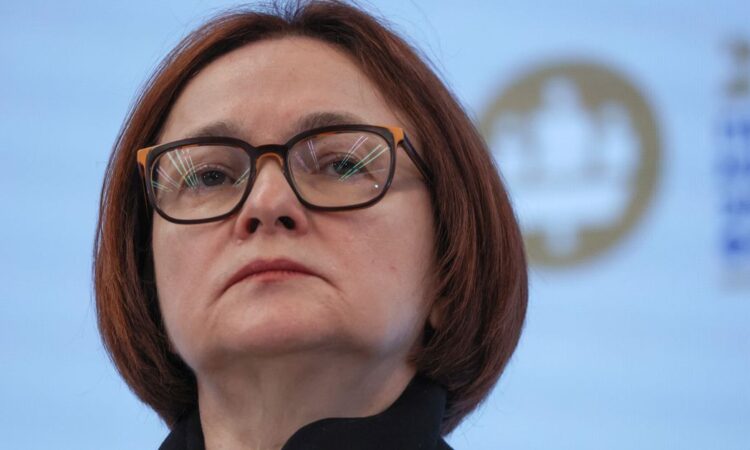
Feb 10 (Reuters) – Russian Central Bank Governor Elvira Nabiullina and her deputy Alexei Zabotkin gave a news conference on Friday after the regulator held its key interest rate at 7.5%.
The quotes below were translated from Russian by Reuters.
NABIULLINA ON INFLATION:
“We don’t have full data about inflation for January, but weekly data shows that in January the pace of price growth probably increased to the highest levels since April last year.”
“In general, the pace of growth in the core components of inflation, according to our estimates, are still moderate. This is largely due to restrained consumer demand.”
“According to our assessment, the balance of risks has shifted more towards pro-inflationary ones.”
ZABOTKIN ON INFLATION IN 2023:
“The dynamics of annual inflation this year will be very much determined by the months of last year dropping out of the calculations. We had very high monthly values in March and April, and when they drop out of the calculations, respectively, there will be a very rapid decline in annual inflation. Most likely we will be below 4% in April.”
Latest Updates
View 2 more stories
“But then, the very low levels of monthly price growth which were observed in June, July, August and until the end of the year will begin to come out of the calculation. As they go out of the calculations, respectively, the annual inflation rate will increase, and by the end of the year we expect it to be in the range of 5-7%.”
NABIULLINA ON RUSSIA’S GDP FORECASTS
“We have improved the forecast for GDP this year. This is due to both the upwards revision of estimates of previous periods, and to more significant budget expenditures than were taken into account in our October forecast.”
“As for GDP dynamics, quarterly dynamics are already positive in the third and fourth quarters. If we talk about annual indicators, in our opinion, GDP will move into positive territory in the middle of the year. As for the overall GDP estimate for this year, we give a symmetrical range (of growth) from -1% to 1%.”
NABIULLINA ON THE GLOBAL ECONOMY
“The risks of a global recession have decreased. The opening of China’s economy after the removal of COVID-19 restrictions, the fact that central banks in advanced economies are close to the peak of their interest rate increases, falls in energy prices, primarily in Europe – all of this has a positive effect on developing economies, including Russia’s key trade partners. However, the positive effects of this for Russia will be restrained by sanctions.”
NABIULLINA ON OTHER INTEREST RATE OPTIONS:
“A cut in rates was not considered today. There were proposals to raise the key rate. Nevertheless, a consensus was formed on holding the rate with some tightening of the signal. We did not consider in detail the option of raising the rate.”
NABIULLINA ON OIL
“Today, the government announced a voluntary reduction in Russia’s production by 500,000 barrels per day from March. We will monitor the impact of this decision on oil prices. Compared to October, our forecast for oil prices in 2023 has been lowered.”
“Yes, there may be some impact on prices, on volumes, on exports, but it will take some time to assess. We will most likely be able to do it by … April.”
“As for assessing the consequences of the (EU) embargo on petroleum products, it came into force only a few days ago and its effects are not yet clear.”
NABIULLINA ON THE GOVERNMENT BUDGET
“As for the size of the budget deficit – much will depend on how the macroeconomic situation develops.”
“Of course, any additional deficit and increase in government demand increases aggregate demand and therefore affects inflation.”
NABIULLINA ON CONSUMER LOANS
“The share of loans to already-indebted borrowers is growing and we see there are also shifts in mortgage lending. For example, in the primary market, the share of loans to borrowers with a down-payment of less than 20% has reached 69%. We will follow this carefully and, if necessary, use macroprudential regulation measures … in order to ensure the appropriate quality of loans is being provided, otherwise we could end up with problem borrowers and social problems.”
Reporting by Reuters
Our Standards: The Thomson Reuters Trust Principles.





